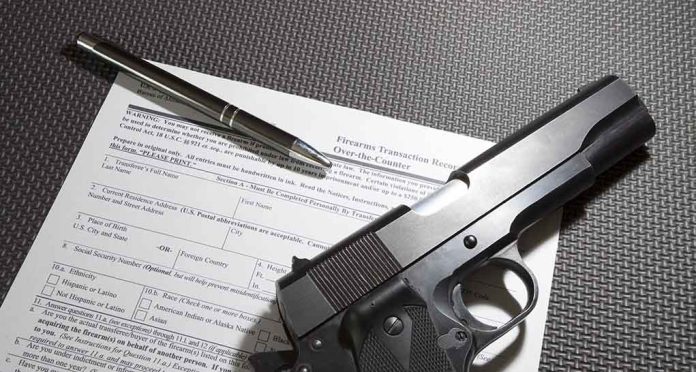
Donald Trump’s pledge to sign national concealed carry reciprocity legislation suggests significant changes to America’s gun laws.
At a Glance
- Trump vowed in 2023 to sign a national concealed carry reciprocity bill if he regained the White House.
- Such proposed legislation faces constitutional challenges and public safety concerns.
- Gun rights remain central to Trump’s campaign and political identity.
- The NRA continues to have a significant influence on Republican primaries.
Trump’s Commitment to National Reciprocity
Donald Trump Jr. recently took to social media to highlight his father’s commitment to signing legislation that would implement nationwide concealed carry reciprocity if elected president a second time. This proposal, reminiscent of driver’s license reciprocity, would allow gun owners with concealed carry permits from one state to legally carry their weapons across state lines, regardless of differing state laws. “Your second amendment does not end at the state line,” Trump stated in a 2023 campaign speech, illustrating his commitment to gun rights.
While Trump made this promise in 2023, the election and Trump Jr.’s social media post have reignited media buzz surrounding concealed carry reciprocity.
The NRA and other advocates for the Second Amendment have openly supported these efforts. They argue that the legislation would unfetter the constitutional right to carry concealed firearms without the need for individual state permits. This concept, known as ‘constitutional carry,’ is a longstanding goal of Trump, reflecting his desire to fortify self-defense rights nationwide.
Donald Trump announces that he'll sign national concealed carry reciprocity.
This means no matter which state you're in, if you've got your concealed carry license, each state will still have to honor it. pic.twitter.com/KwYcVlHPI9
— Daily Loud (@DailyLoud) November 11, 2024
Legislative and Possible Constitutional Roadblocks
The Concealed Carry Reciprocity Act, though passed by the House in 2017, failed to progress in the Senate, underscoring the difficulties ahead. Concerns from gun control advocates primarily revolve around issues of public safety and state autonomy, arguing that this measure could force states with strict gun laws to accept lenient laws from others.
A blog post from 2017 indicated constitutional hurdles abound, primarily involving interpretations of the Commerce Clause and Second Amendment. Critics argue the federal mandate could infringe on states’ rights, complicating its enactment. Donald Trump has consistently criticized these constitutional constraints, potentially foreshadowing a vigorous fight to push the legislation through upon re-election.
“I will protect the right of self-defense everywhere it is under siege. And I will sign concealed carry reciprocity,” Trump has declared.
There are concerns about potential “license tourism,” where gun owners might travel to states with minimal requirements for obtaining a license, causing issues with state law compliance and increased administrative burdens. Despite this, Trump remains unyielding in his view that national reciprocity aligns with protecting constitutional freedoms.
Trump’s Gun Rights Agenda and Election Implications
Trump’s proposed national reciprocity legislation is just one aspect of his broader gun rights agenda. This agenda includes opposing bans on assault weapons and advocating for increased security measures in schools. During his first presidency, Trump emphasized gun rights through the appointment of three Supreme Court justices known for their strong support of the Second Amendment, cementing his legacy in shaping American gun laws.
The National Rifle Association’s influence remains a significant factor in Republican politics. Trump’s alignment with the NRA and his resolute stance on gun rights issues bolster his support base, reflecting long-standing conservative values. With upcoming elections, Trump’s gun policy positions will likely continue to provoke debate and division, as supporters and opponents grapple with the potential impact of these legislative proposals.
Sources
- Agenda47: President Trump Announces Plan to End Crime and Restore Law and Order
- What Donald Trump’s ‘Concealed Carry Reciprocity’ Means for Gun Rights
- Constitutional Hurdles for Concealed Carry Reciprocity
- Concealed Carry Reciprocity: A National Standard?
- President-Elect Trump Announces Push for National Concealed Carry Reciprocity














